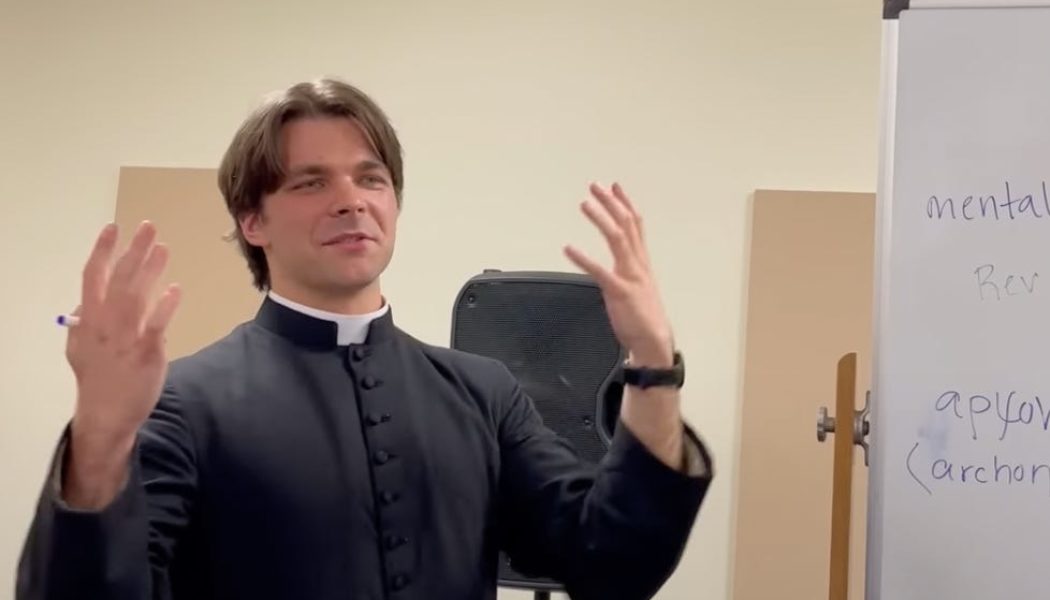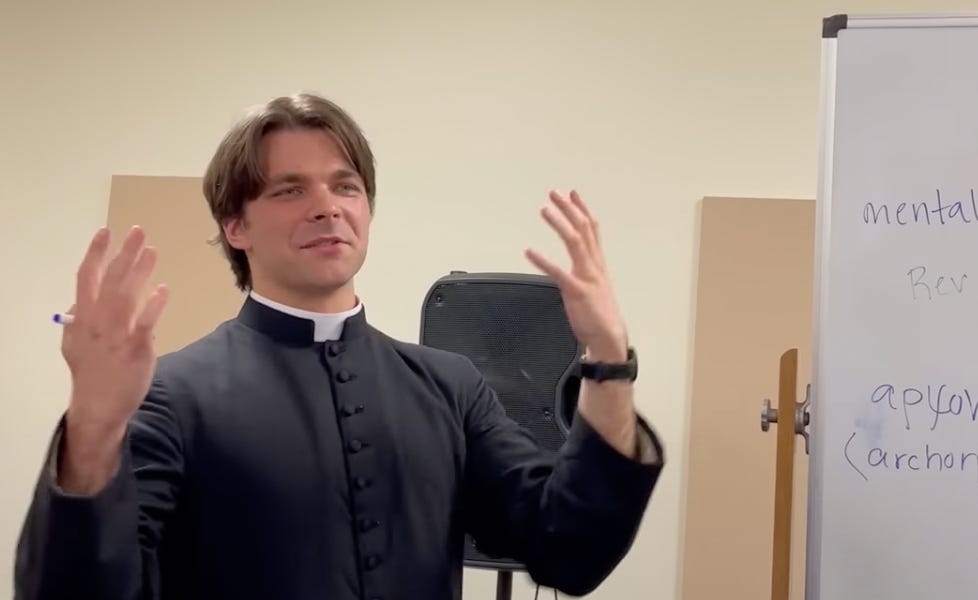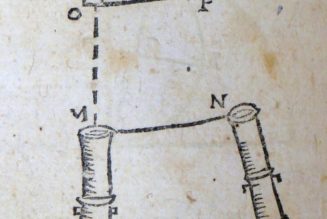The Alabama priest who absconded to Europe with an 18-year-old has married her, according to local media reports and Alabama public records.
Fr. Alex Crow, 31, made headlines around the world this summer, when the Archdiocese of Mobile announced July 28 that he had “abandoned his assignment in the archdiocese,” adding that his “behavior is totally unbecoming of a priest,” and that “he may no longer exercise ministry as a priest, nor tell people he is a priest, nor dress as a priest.”
It emerged quickly that Crow and an 18-year-old girl, a recent graduate of Mobile’s McGill-Toolen High School, had fled to Europe. At first, news reports said that Crow and the girl had gone to Spain in order to perform an exorcism upon the girl — eventually it emerged that they had traveled to Italy.
Letters eventually revealed that Crow had a long entanglement with the girl — that in February 2023, when she was only 17, he wrote to her that they were in love, that he was her “husband” — and that “I promise that I will love you the absolute best I can, every single day.”
Crow also referenced “mak[ing] out” with the girl, suggesting the possibility of abusive sexual contact with her.
Crow and the girl returned to Alabama, according to local media, earlier this month. While Catholics around the world have cried foul, he has not faced criminal charges, after the young woman declined to interview police questions. But while it has not filed charges, the Mobile County sheriff’s office has said that Crow groomed the girl while she was still a minor.
The priest has not responded to interview requests from The Pillar.
But according to an Alabama marriage certificate, Crow and the young woman attempted marriage on Nov. 17, by filing a signed and notarized license application with the state — the required procedure in the state of Alabama.
What does that mean for the case of Fr. Alex Crow? The Pillar explains.
So is Alex Crow still a priest?
The Church teaches that sacramental ordination is indelible — that means that a person is ordained a priest, he remains a priest forever. No subsequent crime, or moral depravity, committed by a priest, can strip him of his sacred ordination.
But a priest can lose his ministerial legal status in the Church — called the “clerical state.”
The process of losing that status is commonly called “laicization” — because a person goes from the legal status of a cleric to the status of a lay person.
Crow has not been laicized yet — but the Archdiocese of Mobile has said repeatedly that he will never again function as a priest, and that it is pursuing laicization at the Vatican. There are a few possible legal avenues by which the archdiocese might pursue that laicization, and it has not specified which process it is presently pursuing.
Ok, so, is he actually married?
When Crow and the young woman signed and filed a marriage license with the state of Alabama, the state recognized them as married. They are afforded all the civil law benefits of marriage, for the purposes of taxes, banking, etc.
But the Church holds that they are not actually married, and for two reasons.
The first is that Catholics are required to marry according to the ritual prescribed by the Church, which Crow and his attempted bride did not. The second is that Crow is still a cleric, and clerics are impeded by the Church’s law from validly contracting marriage.
The Church holds that marriage is a reality of natural law, and not a creation of civil governments. Catholic doctrine does not draw a distinction between “civil marriage” and “sacramental marriage” or “matrimony” — except in the sense that when two baptized people marry validly, the marriage is a sacrament.
In short, the Church says that marriage is a natural reality, which can be regulated by both Church and state, and which might be recognized by the state.
The Church also says that when two baptized people attempt marriage, the sacrament is part of the deal — either they have a sacramental marriage, or they have an invalid marriage.
For two baptized people, there is not an option for a valid-but-not-sacramental-marriage.
So while Crow attempted marriage, the Church would not regard that he succeeded validly at that attempt.
Ok, not actually married. But are there any consequences to the ‘attempted’ marriage?
It is beyond the scope of this explainer to delineate the moral and spiritual consequences for someone who invalidly attempts marriage — knowing the attempt will be invalid — with a young woman whom he is accused of psychologically manipulating as a minor.
That assessment must be made in the confessional.
But the legal consequences are clear.
The Church’s law establishes that a cleric who attempts marriage is “irregular” for the exercise of his sacred orders, which means that he is unable to function as a priest. Crow, of course, was already prohibited from exercising ministry as a priest.
Canon law also establishes that a cleric who attempts marriage, “even if only civilly” incurs a latae sententiae suspension, and can become the subject of other penalties, if he doesn’t amend his ways. Those penalties can include dismissal from the clerical state.
So what happens now?
A spokesperson for the Mobile archdiocese said Tuesday that authorities had only learned about Crow’s attempted marriage when reporters contacted them. But given that Crow is already prohibited from ministry, it seems unlikely that the archdiocese will make any additional formal statement regarding the attempted marriage.
Instead, the archdiocese will likely add the attempted marriage to its efforts to see Crow laicized, and could decide that the attempted marriage offers the most straightforward path to see to Crow’s laicization, through a process at the Vatican’s Dicastery for Clergy, rather than by the pursuit of more complicated penal cases regarding his alleged grooming and coercive behavior.
In the meantime, some local Catholics have asked questions about how much archdiocesan officials knew about Crow’s misconduct, and about whether his departure to Europe could have been prevented. It is unclear whether the archdiocese, or the Holy See, has yet initiated any inquiry into those questions.
This priest has seemingly done some terrible things. Why does The Pillar keep calling him ‘Father Crow?’
That’s a fair question.
It’s our editorial policy to refer to a priest as “Reverend” or “Father” until such time as his laicization has been effected. That, we think, lends a measure of objectivity to our decisions about how to refer to clerics accused of serious misconduct.
That practice might also highlight when a person accused or convicted of serious misdeeds remains a cleric, as in the case of Fr. Marko Rupnik, a priest recently incardinated in a Slovenian diocese, despite allegations of serial sexual abuse.
Comments 13
Services Marketplace – Listings, Bookings & Reviews










